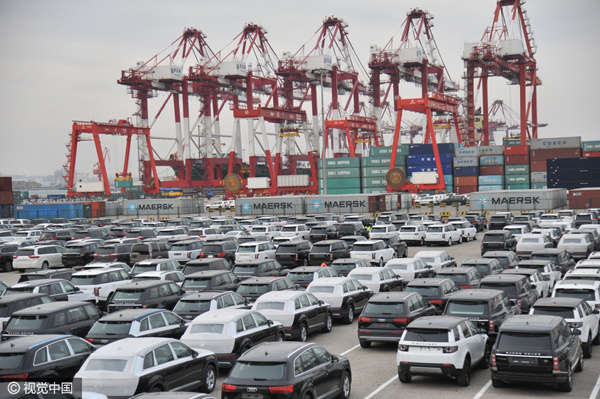China to reduce import car tariffs from July 1
May 24, 20181.4K views0 comments
China’s ministry of finance declared Tuesday that the country is going to slash tariffs on most imported cars to 15 percent, with effect from July 1, 2018. This will include the current 25 percent tariff levied on 135 items and 20 percent on four items, down 40 percent and 25 percent respectively.
This was announced after Liu He, China’s Vice Premier and Steve Mnuchin, US Treasury Secretary led negotiations ended with a mutual agreement to withdraw a trade war.
Import tariffs on 79 auto parts, including car bumpers, doors, and seat belts will also be reduced to 6 percent from the current level of 8 to 25 percent. The average tariffs on vehicles, after the cut, will stand at 13.8 percent and 6 percent on car parts.
According to the ministry, slashing auto import tariffs to this degree will help supply-side structural reform and upgrade the auto industry by bringing in greater quality and efficiency. It will also boost the domestic automobile market and meet the demand for more affordable consumer experiences.
Liu Shangxi, head of the Chinese Academy of Fiscal Sciences pointed out, “By cutting these tariffs, many positive effects will be felt in the global economy.”
But from domestic car manufacturers and battery suppliers’ point of view, Shanghai Metal Market believes that these lower tariffs will take a toll on them, but would benefit supply chain of foreign car companies such as Tesla.
SMM anticipates domestic ternary lithium battery (including NCA and NCM) producers will be more affected than producers of lithium-ion batteries since the latter becomes increasingly mainstream in the international market for new-energy vehicles (NEVs).
The downstream aluminium consumption in the domestic automobile industry has already shrunk due to tariffs cuts on imported cars, according to SMM. The SHFE 1807 contract has also inched down today on May 23, 2018, as a result.
